Coronavirus: Uncertainty over maternity care causing distress
- Published
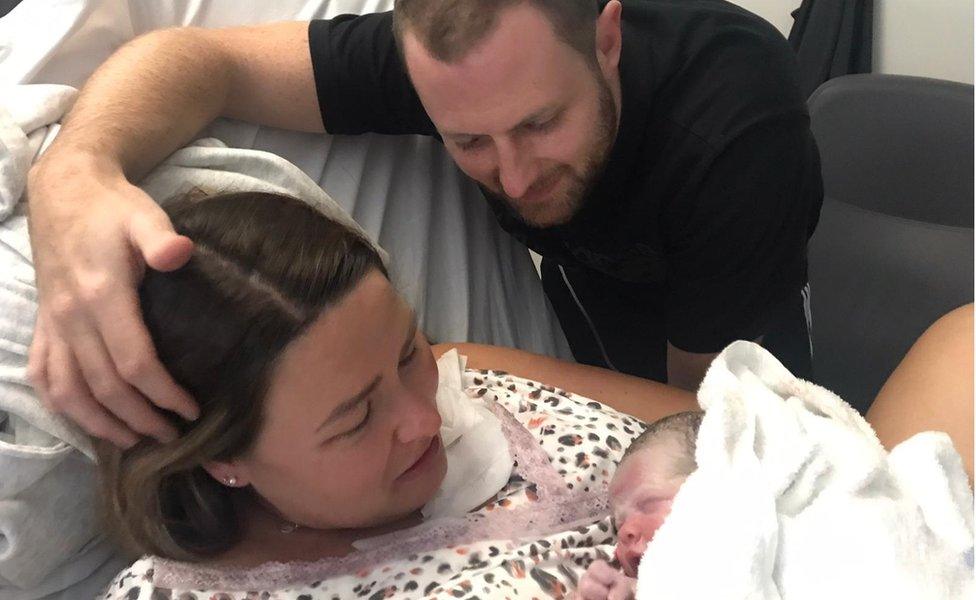
Jacqui Budden's husband was allowed to be present for the birth of their daughter but was asked to leave the ward soon after.
Women say the uncertainty surrounding maternity services during the coronavirus outbreak is "making a stressful situation harder".
Some NHS trusts are not allowing home births or partners on a ward following a birth, while others are.
One trust only provides face-to-face postnatal support when it is "absolutely essential".
The Royal College of Midwives says services may need to be reduced due to Covid-19.
Like many areas in the health sector, staff shortages caused by sickness and workers self-isolating are impacting resources, the college adds.
Nadia Hussein from Leeds is more than a week overdue with her second child.
Due to coronavirus measures, the 33-year-old's birthing plan is no longer possible and she is anxious her husband can only stay with her for two hours following the birth.
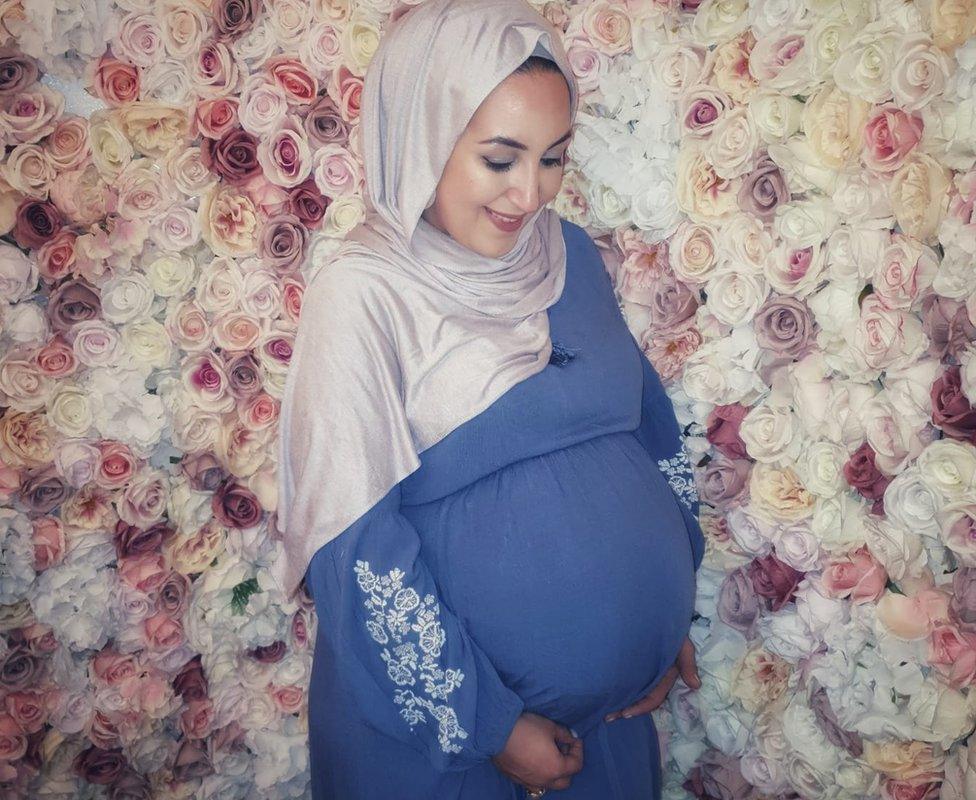
Nadia Hussein is due to give birth imminently
"It's going to be difficult because it's going to be different," Nadia explains. "What a lot of pregnant women are experiencing is a loss of control.
"I understand any decisions that trusts have made are for the benefit of my health and the midwives, but it's sad because you have an image in your mind of what you would like, and it's not working out."
Jacqui Budden gave birth to her first child Evie on Good Friday, more than two weeks after the UK's lockdown was announced.
Husband Tom was allowed to be present for the birth, but was soon asked to leave the ward.
"It was hard to say 'bye' to Tom so soon after Evie arrived," says the 31-year-old. "The nurses and midwives were amazing, but it's not the same as having your partner there to give you the emotional and physical support that you need."
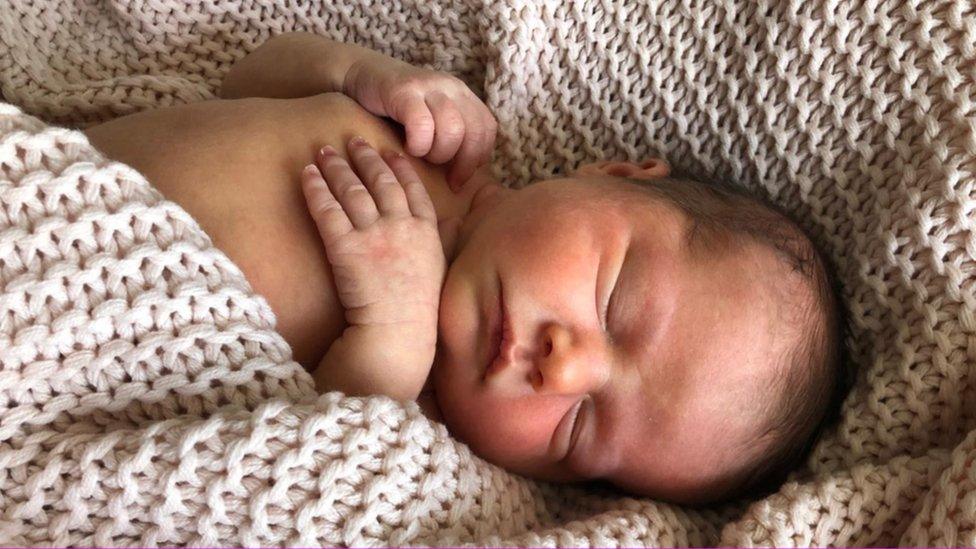
Evie Budden was born over the Easter bank holiday weekend.
The BBC asked a group of NHS trusts and boards across the UK about the services they are able to provide during the coronavirus pandemic.
Nine trusts in England, five boards in Scotland and one trust in both Wales and Northern Ireland responded.
All 16 bodies said one birth partner could be present during labour, but just over a quarter of those asked are allowing partners on the postnatal ward following the birth.
Around a third of trusts and boards that spoke to the BBC are now allowing home births.
In the weeks after a birth, midwives and health visitors are now heavily relying on virtual communication to provide families with postnatal support.
Home visits are mostly still happening, but one trust in London said it only allows face-to-face contact when it is "absolutely essential".
NHS Providers - which represents hospital trusts - say maternity services are constantly under review.
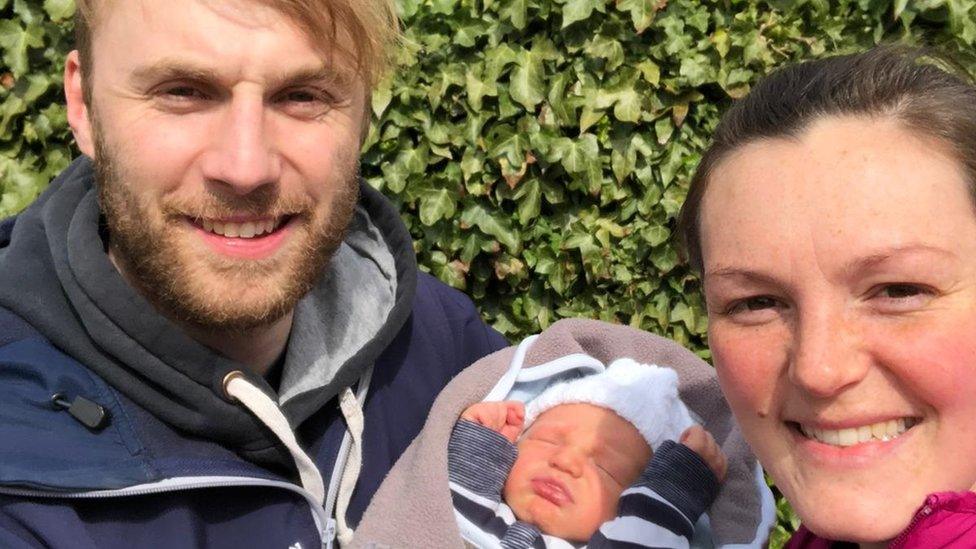
Kim Moralee and her husband Pete became parents for the first time at the end of March.
Kim Moralee from Alnwick in Northumberland was deemed a high-risk pregnancy, but despite some last minute changes she says she had a "positive birth" at the end of March.
However, the 27-year-old's family have not been able to meet baby William because of social distancing measures.
Without the support of relatives, Kim wishes she and her husband could have more face-to-face contact with health professionals.
"We have had three health visits in two weeks," she explains. "The midwives always say they're at the end of the phone, but in normal times I would have been able to go to our midwife-led unit whenever I wanted, but now it's closed.
"As a first time mum, I just want to be able to regularly check that everything is ok."
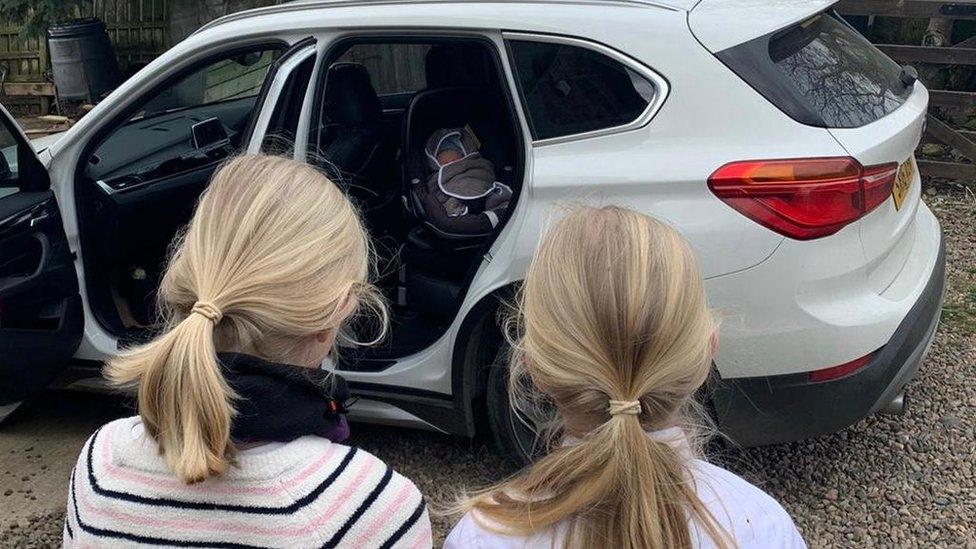
This is the closest baby William Moralee has come to meeting his cousins.
The health community have acknowledged that the coronavirus outbreak is a particularly "distressing" and "uncertain" time for pregnant women and new mothers.
"Our advice to women is to regularly contact your local service and your midwife because services are changing by the day," explains Gill Walton, from the Royal College of Midwives . "Careful thought is going into how maternity services are being provided so we can reduce anxiety.
"Women can have their partners with them at at the birth of the baby as long as that partner does not have Covid-19 symptoms. We suggest women have a back-up plan in case their partner does have symptoms.
"Not having your partner with you once you have given birth must be extremely unsettling, but we are encouraging women to use their phones to stay in touch and take videos and pictures.
"We're seeing lots of stories of happy births," she says.